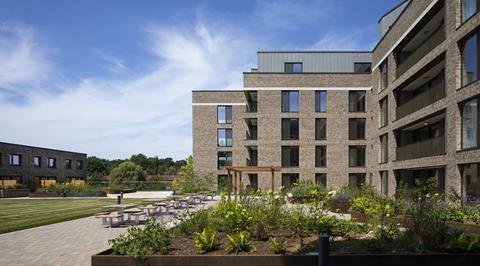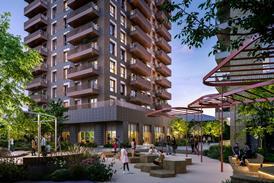Wide-ranging paper also calls for planning presumption in favour of later living housing and requirements on Homes England to support its expansion
The government should establish a specialist unit to drive the delivery of age-friendly homes, an independent taskforce has recommended.

The Older People’s Housing Taskforce, set up by the previous government to look at tackling barriers to delivering later living homes, has today published its recommendations.
It calls on the government to champion and deliver a “National Housing Strategy for an Ageing Population, which should include consideration of the role of care homes”.
It said ministers should establish a joint unit between Ministry of Housing, Communities and Local Government (MHCLG) and the Department of Health and Social Care (DHSC) to create a ”plan of action.”
It said: “This jointly sponsored unit between MHCLG and DHSC could take the form of an arms-length body (Office for an Ageing Population) that will galvanise transformational leadership at national and local levels, governed by an independent board, including investors”.
The taskforce’s report makes a wide range of recommendations.
It suggests a number of measures to strengthen planning policies to help deliver a greater volume and diversity of older person’s housing.
These include introducing a planning policy presumption in favour of later living homes, revising definitions to clarify which use class different forms of later living homes belong to, and revising planning practice guidance for local authorities.
It suggests establishing a common standardised methodology for local assessment of need for later living housing and requiring planning authorities to co-produce a later living housing strategy.
The report also recommends government works to agree definitions on “age-friendly, dementia-inclusive, faith and culture-sensitive housing and neighbourhoods”.
It suggests ministers could expand later living and older person’s housing at scale by mandating Homes England to support its expansion, introducing a support package for developers and operators, reviewing lease regulations, reviewing and expanding funding for the Older People’s Shared Ownership Scheme and offering incentives for older people to ‘right-size’
On design of later living homes, the taskforce suggests developing a national design code for age-friendly and inclusive housing. It also calls for requirements on planning authorities to ensure local design codes mandate developments that are “age-friendly and inclusive”.
The report says government should also working across departments to “agree definitions on age-friendly, dementia-inclusive, faith and culture-sensitive housing and neighbourhoods”.
It says 10% of homes delivered through the affordable homes programme should be for older peoples housing or later living, while government should also incentivise community-led models.
The chair of the taskforce, Professor Julienne Meyer, said: “I’d like to issue a call for action for all stakeholders to co-produce, with senior citizens from diverse backgrounds, housing environments that enhance wellbeing in later life and contribute to local communities.
“If we are to address the potential challenge of a workforce being unable to meet the needs of an ageing population - housing, wellbeing and community needs to be everyone’s business.”
Responding to the report, housing minister Matthew Pennycook said the government “recognises the importance of increased supply and improving the housing options for older people in later life, and we will give careful consideration to the many recommendations set out in the report.”
He said: “Through the recent consultation on proposed reforms to the National Planning Policy Framework, we tested proposals to promote the delivery of mixed-use sites, including housing designed for specific groups such as older people.”
Pennycook said government is working with the Planning Advisory Service to provide more clarity on how planning use classes apply to specialist older people’s housing.
















No comments yet